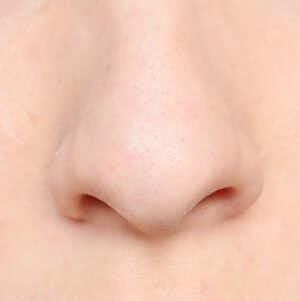
One of the early symptoms of a COVID-19 infection is losing the senses of smell and taste. This problem is not unique to COVID-19; other viral infections have also caused a disruption of these senses. Moreover, some medications can occasionally cause such problems. Unfortunately, doctors have no certain cures for this disorienting, debilitating impairment.
Will Alpha-Lipoic Acid Restore Senses of Smell and Taste?
Q. When I came down with COVID-19, I lost my senses of smell and taste. Eventually, I recovered from the virus. However, after nine weeks I still cannot smell or taste normally. I can taste salt, sweet and ‘hot’ spiciness, but I cannot distinguish the flavor from the food or drink that generates
those flavors.
I have read that 600 mg daily of alpha-lipoic acid (ALA) might help restore smell and taste in some situations. Do you have any insights on the ability of ALA to restore these senses?
A. The loss of these senses may occur early in infection with the coronavirus and sometimes lingers after recovery. Healthcare experts refer to these symptoms as “anosmia” (no smell) and “ageusia” (no taste).
A report in the Journal of Laryngology and Otology (Aug. 2020) notes that in some studies
“…around 25 per cent of patients evaluated 30 days after the clinical onset of Covid-19 have severe chemosensitive disorders…”
These researchers found that while most people get better within a month, 7.2 percent of post-COVID patients may still complain of loss of taste and smell two months later.
In addition, the authors report
“a paucity of high-quality evidence regarding potential treatments.”
Nonetheless, they listed three possible treatments: oral steroids, alpha-lipoic acid and omega-3 fatty acids (for example, fish or krill oil).
Drilling Down on ALA:
One small study found that
“…alpha-lipoic acid may be helpful in patients with olfactory loss after upper respiratory tract infection” (Laryngoscope, Nov. 2002).
A systematic review found modest evidence supporting corticosteroids, alpha-lipoic acid or caroverine to treat post-viral smelling impairment (International Forum of Allergy & Rhinology, July 2016). Caroverine is a muscle relaxant used in Europe. Doctors there sometimes prescribe it to treat tinnitus.
We have not found any studies of ALA for post-COVID sensory deficits. Perhaps that is because it is still too early for studies to have been conducted, data analyzed and results published.
As a result, ALA might be worth a try, but there is no evidence either way regarding its efficacy. The 600 mg dose you mention is also used to treat peripheral neuropathy (International Journal of Endocrinology, Jan. 26, 2012).
Citations
- Vaira LA et al, "Smell and taste recovery in coronavirus disease 2019 patients: a 60-day objective and prospective study." Journal of Laryngology and Otology, Aug. 2020. doi: 10.1017/S0022215120001826
- Hummel T et al, "Lipoic acid in the treatment of smell dysfunction following viral infection of the upper respiratory tract." Laryngoscope, Nov. 2002. DOI: 10.1097/00005537-200211000-00031
- Harless L & Liang J, "Pharmacologic treatment for postviral olfactory dysfunction: a systematic review." International Forum of Allergy & Rhinology, July 2016. DOI: 10.1002/alr.21727
- Mijnhout G et al, "Alpha lipoic acid for symptomatic peripheral neuropathy in patients with diabetes: A meta-analysis of randomized controlled trials." International Journal of Endocrinology, Jan. 26, 2012. doi: 10.1155/2012/456279

